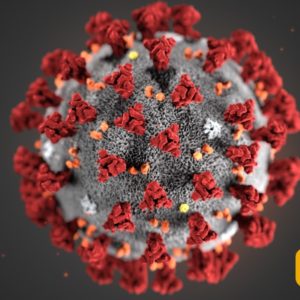COVID-19 cases are on the rise. The flu season is upon us. Respiratory Syncytial Virus (RSV) significantly threatens older Americans and those with chronic and complex conditions. Public health officials are grappling with the “tripledemic” of these three infectious diseases, and it may hit hardest in rural America where care options are limited and populations rely on community pharmacists to manage their health.
But unless Washington acts, administrative burdens could put barriers between patients and antiviral treatments that can mitigate severe COVID-19 symptoms. To protect those in rural America, the Biden administration must alleviate the burden on independent and community pharmacies to access and deliver COVID-19 therapeutics.
COVID-19 has been no more devastating for a single American population than seniors. By the end of 2022, nearly nine in 10 COVID-19 deaths were among people 65 and over. These realities are exacerbated in rural towns, where older Americans face significant barriers to accessing a primary care doctor.
More than one in five older Americans live in rural areas, with many concentrated in states where more than half of the aging population lives in a rural area. Such challenges are magnified by the spread of COVID-19 and the need for immediate access to treatment and care for vulnerable people.
In rural communities where these access barriers persist, independent and community pharmacists are critical to meeting health needs. With nine in 10 Americans living within five miles of a pharmacy, seniors often look to local pharmacists as trusted providers of primary care. Throughout the COVID-19 pandemic, pharmacists reached into rural communities to set up testing and vaccination sites. They were leaders in delivering treatments to patients when they came to market. To date, Federal Retail Pharmacy Program pharmacists have administered more than 307 million doses of COVID-19 vaccine and more than 42 million COVID-19 tests. One study shows pharmacist efforts averted 8 million COVID-19 hospitalizations and 1 million COVID-19 deaths.
Healthcare providers, including pharmacists, rely on the Health Partner Order Portal (HPOP) to request and order government-procured COVID-19 therapeutics.
However, the HPOP requires providers to jump through burdensome administrative hoops to request, order and report the usage of these critical treatments, outside the standard pharmacy workflow. Today, these barriers are limiting the ability of independent pharmacists to be able to effectively stock and provide prompt access to these medicines to their patient communities. The rise in COVID-19 cases only increases the challenge pharmacists will face to provide critical treatments to those in need.
The administration can get ahead of the “tripledemic” by alleviating administrative burdens on pharmacies to request and access COVID-19 therapeutics, including those serving vulnerable communities. Moreover, the administration must share resources and conduct continuing education with healthcare providers and consumers regarding the need for accessible testing and treatment options for COVID-19.
Recently, 60 Plus Association joined the National Community Pharmacists Association and more than 50 concerned organizations urged the Department of Health and Human Services to alleviate the administrative burden on pharmacies to request COVID-19 therapeutics. Without action, the HPOP will remain another poor example of what can unfold when the government runs a critical program that affects patient communities. It should trouble anyone experiencing challenges accessing such medications to contact their member of Congress to call for a remedy.
This fall, Americans will again look to their pharmacists to protect them from COVID-19, flu and other infectious diseases. Seniors will rely on their community pharmacists to get vaccinated, get tested when they experience symptoms, and find treatment for COVID-19 to prevent severe symptoms and hospitalizations. The administration must ensure pharmacists can deliver prompt treatment and care for Americans where no other options may exist.

